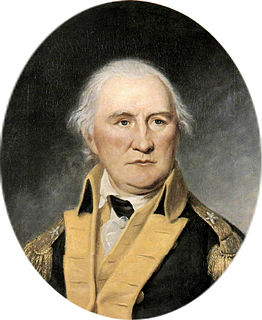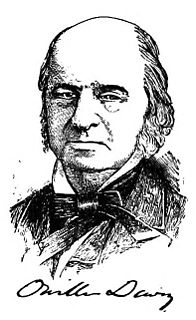A Quote by Viktor E. Frankl
Usually, to be sure, man considers only the stubble field of transitoriness and overlooks the full granaries of the past, wherein he had salvaged once and for all his deeds, his joys and also his sufferings. Nothing can be undone, and nothing can be done away with. I should say having been is the surest kind of being.
Related Quotes
Was his life nothing? Had he nothing to show, no work? He did not count his work, anyone could have done it. What had he known, but the long, marital embrace with his wife. Curious, that this was what his life amounted to! At any rate, it was something, it was eternal. He would say so to anybody, and be proud of it. He lay with his wife in his arms, and she was still his fulfillment, just the same as ever. And that was the be-all and the end-all. Yes, and he was proud of it.
Emile Saint-Blague had been a lively, versatile painter in his youth, but he had abused his energy by painting too many pictures; so that in what might have been the ripe period of his art he had nothing left but ideas. A man who has nothing left but ideas may be of great service to his friends, but he is of no use at all to himself. Emile was certainly an inspiration to his friends.
His face set in grim determination, Richard slogged ahead, his fingers reaching up to touch the tooth under his shirt. Loneliness, deeper than he had never known, sagged his shoulders. All his friends were lost to him. He knew now that his life was not his own. It belonged to his duty, to his task. He was the Seeker. Nothing more. Nothing less. Not his own man, but a pawn to be used by others. A tool, same as his sword, to help others, that they might have the life he had only glimpsed for a twinkling. He was no different from the dark things in the boundary. A bringer of death.
I learned that it is better, a thousandfold , for a proud man to fall and be humbled, than to hold up his head in his pride and fancied innocence. I learned that he that will be a hero, will barely be a man; that he that will be nothing but a doer of his work, is sure of his manhood. In nothing was my ideal lowered, or dimmed, or grown less precious; I only saw it too plainly, to set myself for a moment beside it.
I understood how a man who has nothing left in this world may still know bliss, be it only for a brief moment, in the contemplation of his beloved. In a position of utter desolation, when a man cannot express himself in positive action, when his only achievement may consist in enduring his sufferings in the right way - an honorable way - in such a position man can, through loving contemplation of the image he carries of his beloved, achieve fulfillment.
Lord Maccon believed that if his trousers were on his legs, and something else was on his torso, he was dressed. The less done after that, the better. His wife had been startled to find that in the summertime, he actually went around their room barefoot! Once -- and only once, mind you -- he even attempted to join her for tea in such a state. Impossible man. Alexia put a stop to that posthaste.
The ruin of a man's teaching comes of his followers, such as having never touched the foundation he has laid, build upon it wood, hay, and stubble, fit only to be burnt. Therefore, if only to avoid his worst foes, his admirers, a man should avoid system. The more correct a system the worse will it be misunderstood; its professed admirers will take both its errors and their misconceptions of its truths, and hold them forth as its essence.
Everlastingly chained to a single little fragment of the Whole, man himself develops into nothing but a fragment; everlastingly in his ear the monotonous sound of the wheel that he turns, he never develops the harmony of his being, and instead of putting the stamp of humanity upon his own nature, he becomes nothing more than the imprint of his occupation or of his specialized knowledge.




































